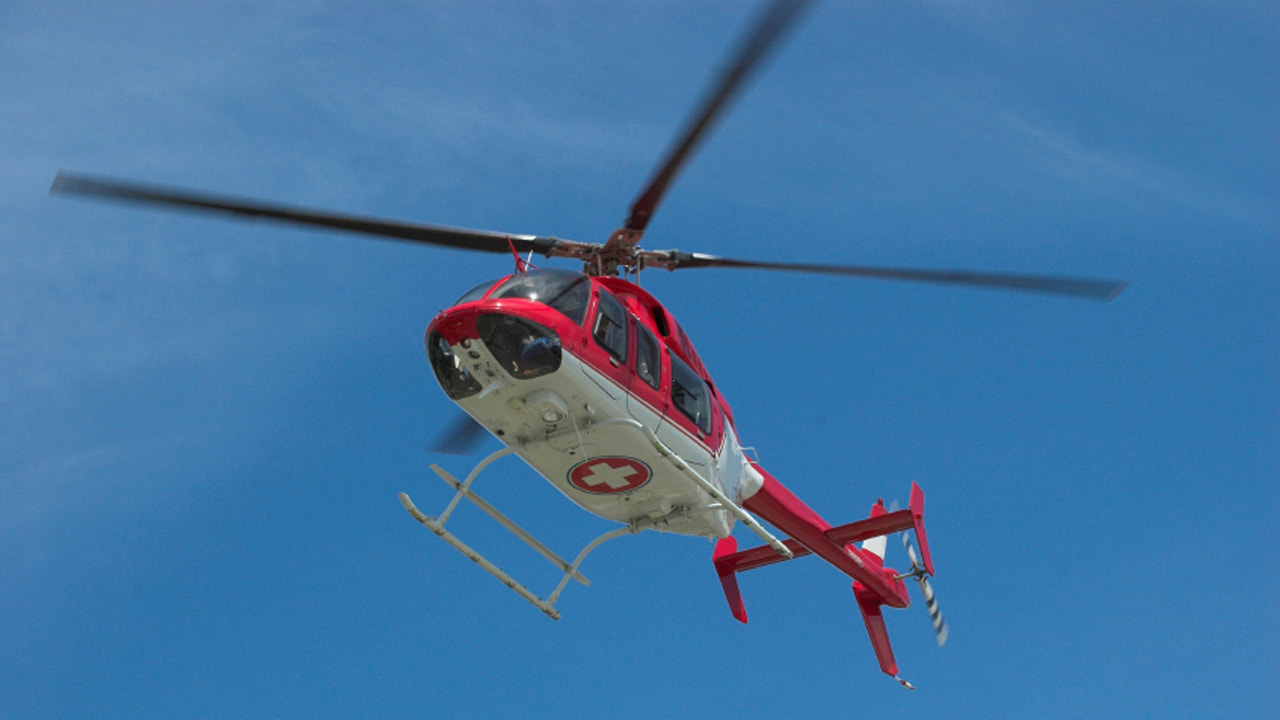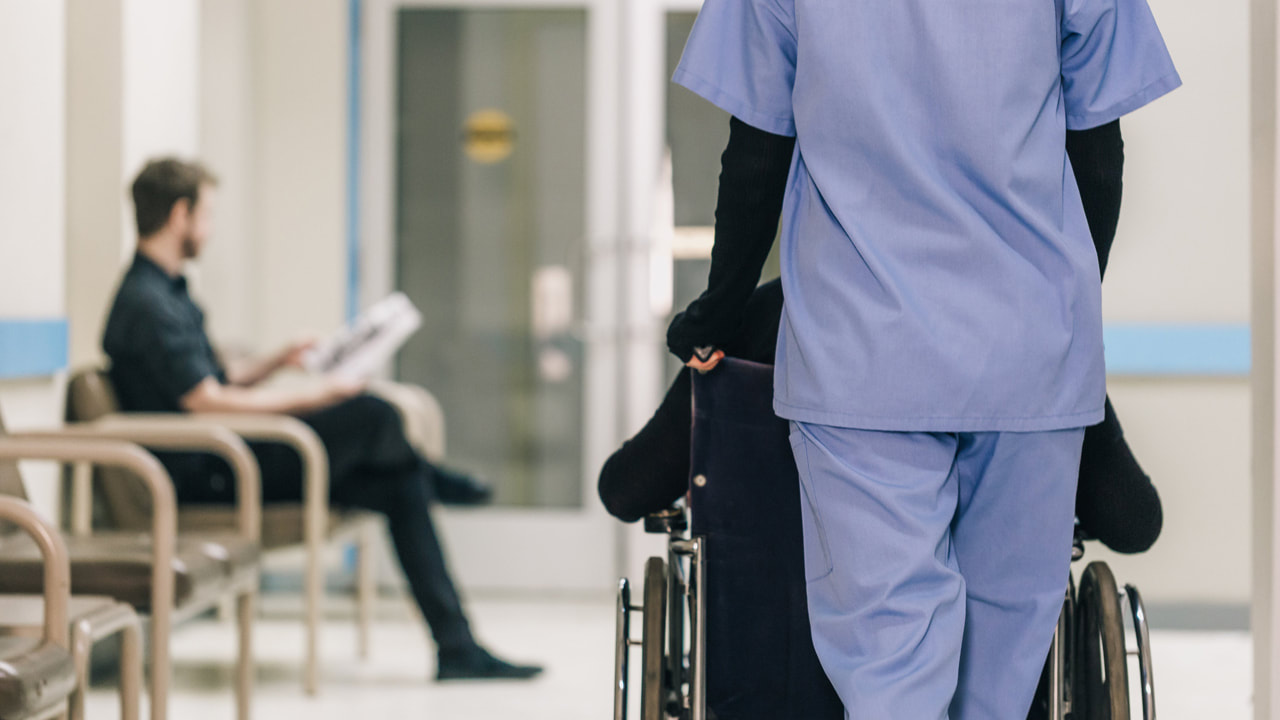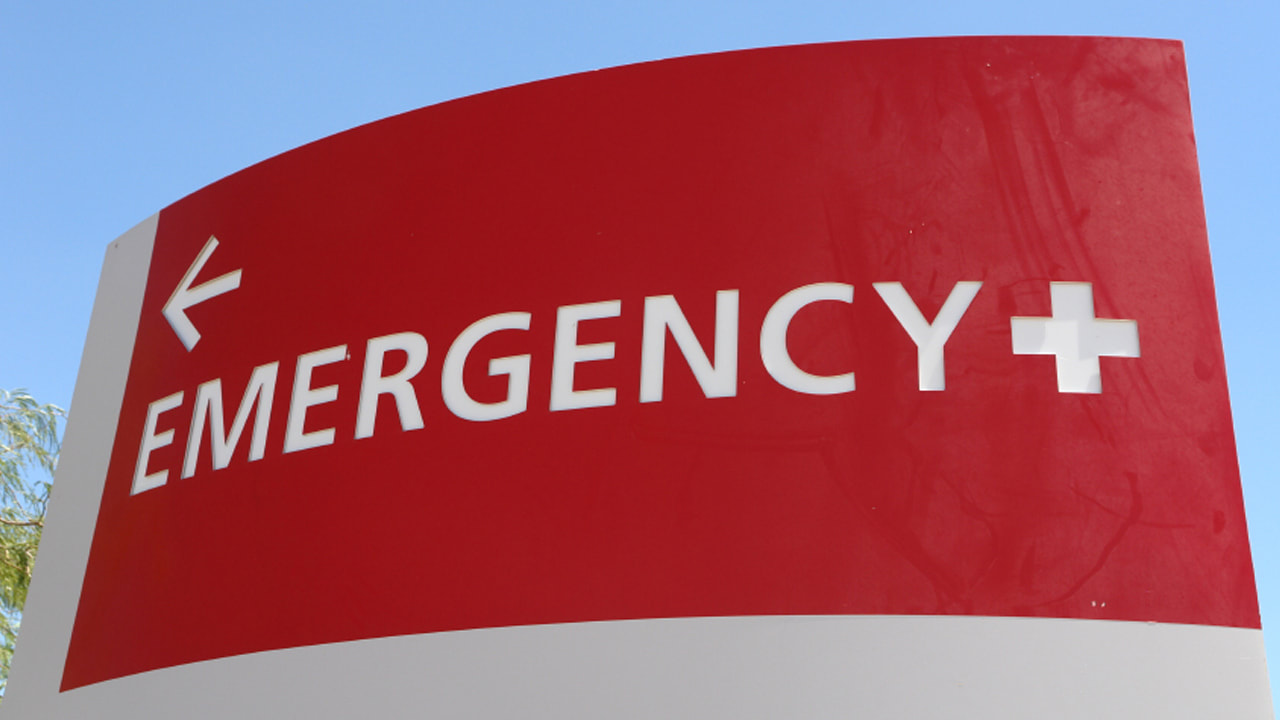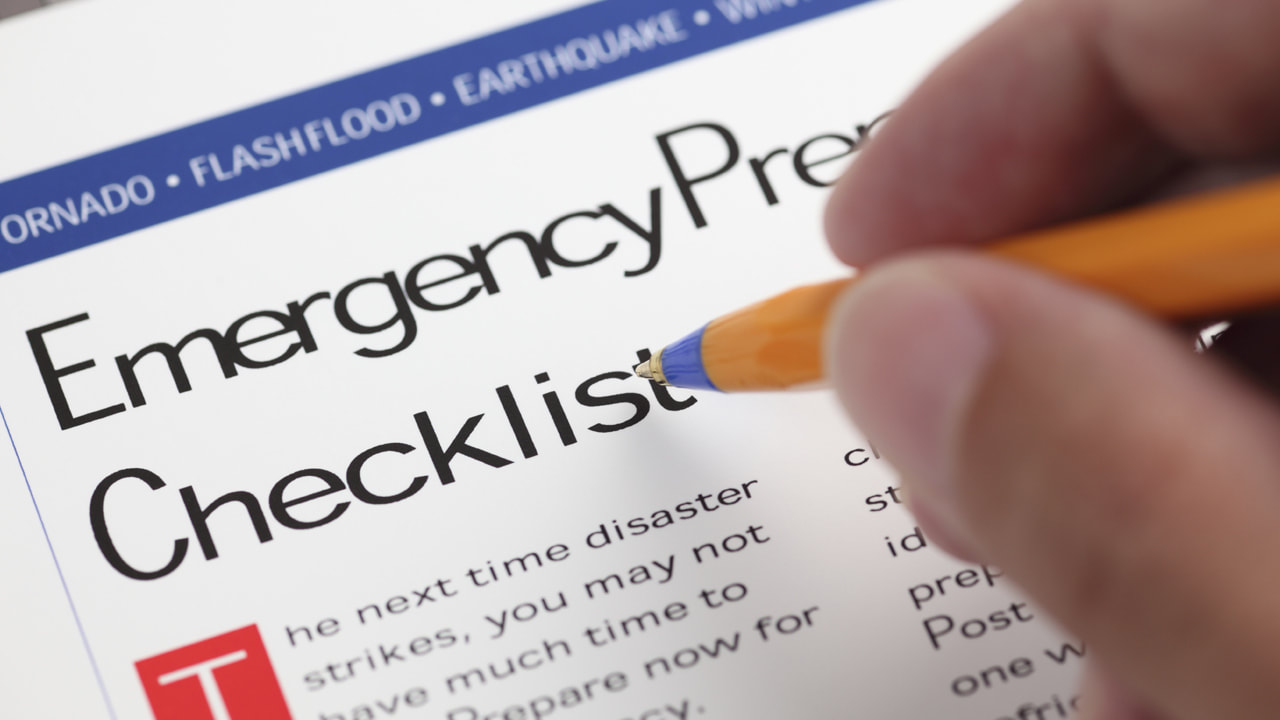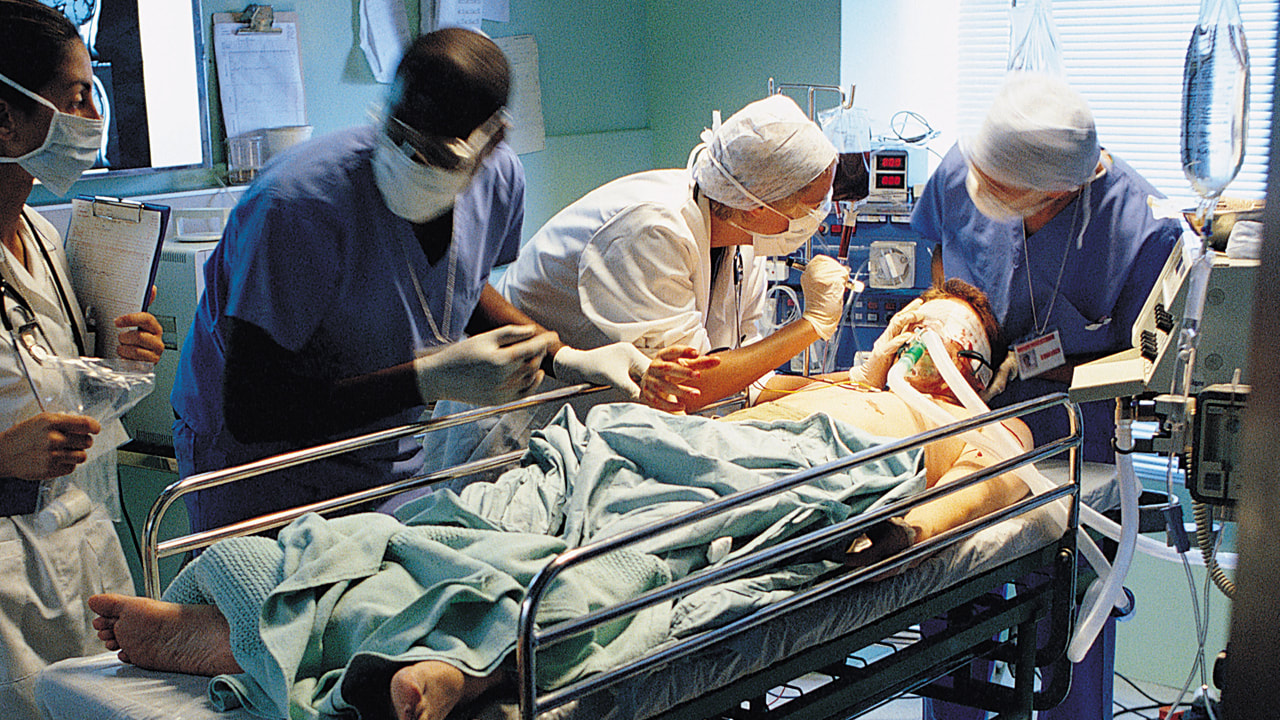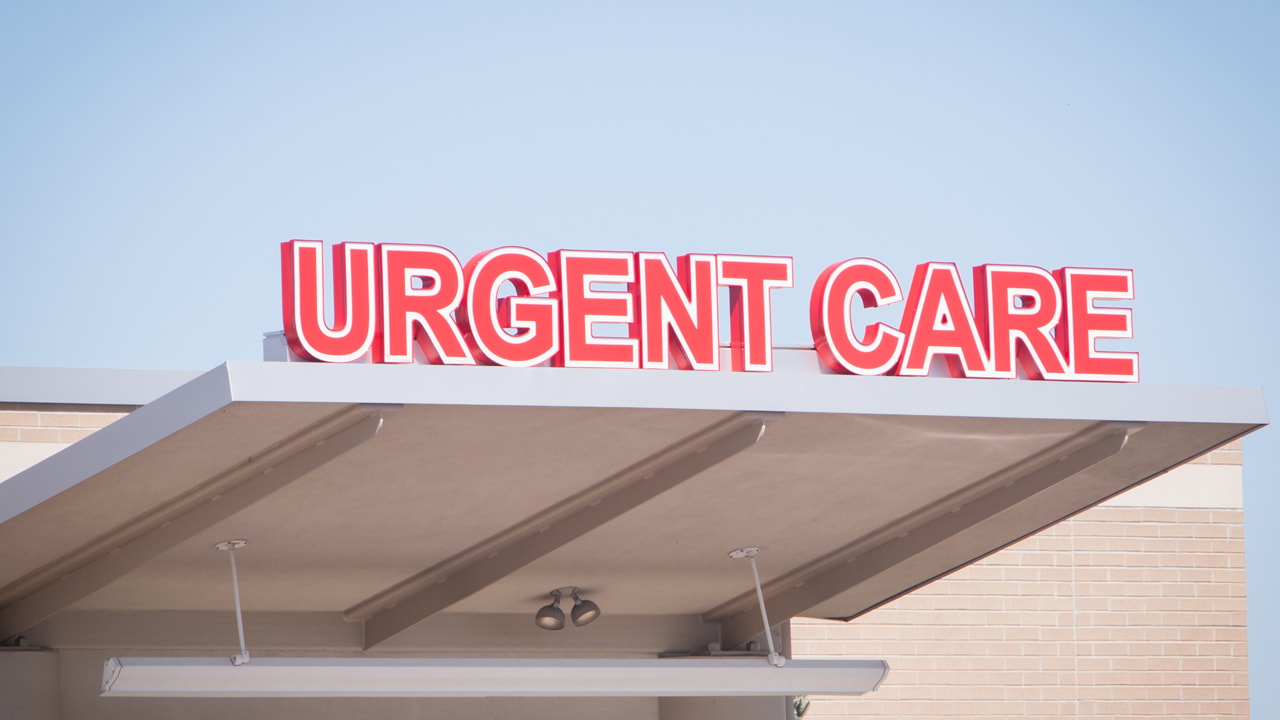Our success is a direct result of our personal commitment to our clients and their goals. Mike Williams, President
The Abaris Group |
Mission StatementThe Abaris Group is driven by our desire to assure accessible, quality and sustainable prehospital, hospital and system wide emergency and community health care services to the public. Our goal is to be the leading community and emergency health care consulting firm in the country by providing excellent consulting services in data analysis, strategic planning, workflow analysis, and financial strategies to clients throughout the country.
|
About The Abaris Group
|
The Abaris Group was founded in 1989 and has been providing health care consulting to a wide spectrum of clients, from small proprietary firms to large governmental entities. Our firm specializes in community health assessments, hospital and emergency department process improvement, trauma services, emergency medical services, and emergency preparedness and disaster planning. We provide consulting on a wide range of topics including strategic planning, operational improvement, and financial enhancement to help our clients achieve their goals.
We deliver value to our clients in the form of quality recommendations and strategies that work. To achieve this, we conduct detailed analyses, blending insight and experience from all spectrums of the healthcare and emergency care fields to meet our client's unique needs. Whether it is evaluation of new programs, studies of existing ones or assistance with implementation, we provide a superior level of service to you and your organization. |
Our Leadership Team
Mike Williams, MPA/HSA, NREMT
President
With over 35 years of experience in the field of emergency medical services and as president of The Abaris Group for 15 years, Mike has provided numerous consulting services to over 300 health care providers from trauma centers, emergency departments, governmental entities, health plans, ambulance companies and more.
Prior to his work with The Abaris Group, Mike was the Director of EMS for Orange County, California; the Director of EMS for Imperial County, California; and the Executive Director of the Orange County Trauma Society in Orange, California.
Mike is on the editorial board for ED Management and routinely provides telephone consultation to the Health Care Advisory Board. He has published articles and documents for several journals and organizations including:
Each year, Mike conducts numerous presentations on various Managed Care and Emergency and Ambulatory Services related topics. He also provides expert witness testimony and case preparation on EMS and health care issues. Listed below are a few of Mike's recent presentations.
* Same presentations also given during Reimbursement: Trends and Strategies in Emergency Medicine. New Orleans, LA, January 20-22, 2003.
His film/television credits include producer of "EMS Interactive 94-Rural Satellite EMS Television Show" and "Improving Revenue and Stabilizing Volunteer Recruitment Programs," both funded by Health Resources and Services Administration (HRSA) grants. He was the EMS Coordinator/Technical Expert for "Trauma Emergencies," winner of the 1989 American Film Institute "Blue Ribbon" award for medical education films.
Prior to his work with The Abaris Group, Mike was the Director of EMS for Orange County, California; the Director of EMS for Imperial County, California; and the Executive Director of the Orange County Trauma Society in Orange, California.
Mike is on the editorial board for ED Management and routinely provides telephone consultation to the Health Care Advisory Board. He has published articles and documents for several journals and organizations including:
- ED Management
- Trauma Care Systems
- California Hospitals
- JEMS
- Journal of the American Medical Association (JAMA)
- Journal of Ambulatory Care Marketing
- Ambulatory Care
- American College of Emergency Medicine
- California State Legislature
- California Association of Hospitals and Health Systems
Each year, Mike conducts numerous presentations on various Managed Care and Emergency and Ambulatory Services related topics. He also provides expert witness testimony and case preparation on EMS and health care issues. Listed below are a few of Mike's recent presentations.
- Responding to EMS Diversion and ED Saturation. Speaker: Mike Williams. May 2005, California Ambulance Association
- Developing Performance-based EMS Systems. Speaker: Mike Williams. May 2005, Zoll Users Group
- Improving Your Uninsured Patient Collections. Speaker: Mike Williams. May 2005, American College of Emergency Physicians (ACEP), Scottsdale, AZ
- Reimbursement Trends and Strategies in Emergency Medicine. Speaker: Mike Williams. May 2005, American College of Emergency Physicians (ACEP), Scottsdale, AZ
- Revisiting California ED Nursing Ratios. Co-speaker: Mike Williams. May 4, 2004, The Abaris Group Webinar Series
- Enhancing Revenue for Trauma Centers. Speaker: Mike Williams. March 2, 2005, The Abaris Group Webinar Series
- How to Navigate the Minefield of Contract Negotiations and Appeals. Speaker: Mike Williams. October 12-15, 2004. Scientific Assembly, American College of Emergency Physicians (ACEP), Boston, MA
- Physician Compensation Structures: Show Me the Money. Speaker: Mike Williams. October 12-15, 2004, Scientific Assembly, American College of Emergency Physicians (ACEP), Boston, MA
- Contemporary Strategies for Solving ED Saturation and Ambulance Diversion. Speaker: Mike Williams. July 8, 2003, California Ambulance Association, Anaheim, CA
- Strategic Development of Fee Schedules and Compensation Packages. Speaker: Mike Williams. May 13-17, 2003, Reimbursement: Trends and Strategies in Emergency Medicine, American College of Emergency Physicians (ACEP), Nashville, TN*
- Practice Enhancement: Identifying Opportunities. Speaker: Mike Williams, May 13-17, 2003, Reimbursement: Trends and Strategies in Emergency Medicine, American College of Emergency Physicians (ACEP), Nashville, TN*
- Enhancement: The Follow Through; Reimbursement: Trends and Strategies in Emergency Medicine. Speaker: Mike Williams. May 13-17, 2003, American College of Emergency Physicians (ACEP), Nashville, TN*
- Finding Unique and Unusual Sources of Funding for EMS. Speaker: Mike Williams. February 21, 2003, American Ambulance Association, Newport Beach, CA
* Same presentations also given during Reimbursement: Trends and Strategies in Emergency Medicine. New Orleans, LA, January 20-22, 2003.
His film/television credits include producer of "EMS Interactive 94-Rural Satellite EMS Television Show" and "Improving Revenue and Stabilizing Volunteer Recruitment Programs," both funded by Health Resources and Services Administration (HRSA) grants. He was the EMS Coordinator/Technical Expert for "Trauma Emergencies," winner of the 1989 American Film Institute "Blue Ribbon" award for medical education films.
Juliana Boyle, MBA
Senior Consultant
Juliana has worked as a consultant/economist for The Abaris Group since 1992. She works on various emergency medical service projects, specifically analyzing relevant health care data and making recommendations based on these findings.
She works with our clients to help them meet their health care data needs, ensuring that they have all facts available to make informed decisions.
Key Projects Completed
Conducted a time-and-motion study and work sampling study for a university based organization in Northern California. This entailed collecting the relevant data, statistically analyzing the results, and writing the reports detailing the results.
Reviewed and analyzed data for a health plan to assist them with their policies in working with their emergency department providers. One part of the study focused on tracking billing issues such as denials and downgrading of a claim. Very large data bases were manipulated to collect the pertinent data which was used to revamp the health plan's ED policies.
Analyzed the economic impact of a new ambulance service for the Albuquerque metropolitan area.
Developed projections and supporting recommendations for an occupational medicine program in northern California.
Evaluated a new non-urgent medical transportation service for a major metropolitan area that could result in a substantial increase in service to the community at a reduced cost.
Previous Experience
Prior to working for The Abaris Group, Juliana worked extensively with the Governor of New Mexico and his Assistant Chief of Staff during the 1995 Legislative Session as a Senior Policy Analyst. In addition, she worked for two New Mexico Department of Finance & Administration Cabinet Secretary's on their staff in special projects.
She has also served as an economic analyst, senior fiscal analyst, and policy analyst for the New Mexico Legislative Finance Committee.
At the University of New Mexico, Bureau of Business & Economic Research, Juliana managed the New Mexico Business & Industry Data Center, developing and maintaining large databases for a statewide geographic information system.
Juliana has a Bachelor's of Arts in Economics from the University of New Mexico and a Master's in Business Administration from Saint Mary's College of California.
She works with our clients to help them meet their health care data needs, ensuring that they have all facts available to make informed decisions.
Key Projects Completed
Conducted a time-and-motion study and work sampling study for a university based organization in Northern California. This entailed collecting the relevant data, statistically analyzing the results, and writing the reports detailing the results.
Reviewed and analyzed data for a health plan to assist them with their policies in working with their emergency department providers. One part of the study focused on tracking billing issues such as denials and downgrading of a claim. Very large data bases were manipulated to collect the pertinent data which was used to revamp the health plan's ED policies.
Analyzed the economic impact of a new ambulance service for the Albuquerque metropolitan area.
Developed projections and supporting recommendations for an occupational medicine program in northern California.
Evaluated a new non-urgent medical transportation service for a major metropolitan area that could result in a substantial increase in service to the community at a reduced cost.
Previous Experience
Prior to working for The Abaris Group, Juliana worked extensively with the Governor of New Mexico and his Assistant Chief of Staff during the 1995 Legislative Session as a Senior Policy Analyst. In addition, she worked for two New Mexico Department of Finance & Administration Cabinet Secretary's on their staff in special projects.
She has also served as an economic analyst, senior fiscal analyst, and policy analyst for the New Mexico Legislative Finance Committee.
At the University of New Mexico, Bureau of Business & Economic Research, Juliana managed the New Mexico Business & Industry Data Center, developing and maintaining large databases for a statewide geographic information system.
Juliana has a Bachelor's of Arts in Economics from the University of New Mexico and a Master's in Business Administration from Saint Mary's College of California.
Our Services
The Abaris Group provides a wide array of consulting services in the area of community and emergency healthcare. Our aim is to listen carefully and fully understand what the client needs/expects and meet and exceed those expectations.
Air Medical
Our firm has conducted numerous studies for air medical programs. These have included working with separate interests of multiple, unrelated sponsor hospitals, conducting an Environmental Impact Report for a hospital's air medical program, feasibility studies and revenue and cost analysis.
The Abaris Group was selected to plan, direct and implement a one-day workshop for the Association of Air Medical Services (AAMS) on the future of air medical services and its future in a managed care environment.
Key Air Medical Services
The Abaris Group was selected to plan, direct and implement a one-day workshop for the Association of Air Medical Services (AAMS) on the future of air medical services and its future in a managed care environment.
Key Air Medical Services
- Adding additional transport capability
- Analyzing patient transport needs
- Consolidating transport programs
- Contract negotiation
- Equipment acquisition (lease versus buy, new or used, type, etc.)
- Expanding sponsorship
- Evaluating aircraft ownership
- Reviewing operations contract
- Staffing pattern
Ambulance Services
The Abaris Group has an extensive history consulting with ambulance programs. Studies conducted include feasibility studies, revenue and cost analysis, and strategic planning. We have worked on a diverse range of projects including program assessment and analysis, merger and acquisition, contract and revenue studies, and the development of request for proposals (RFPs) for governmental entities desiring to purchase ground and/or air medical service.
The Abaris Group has completed several governmental RFP projects to select an ambulance provider for various sized cities and communities. For example, for a recent project in Colorado several competing providers were expected to bid for the service contract. The RFP process was conducted by The Abaris Group (including writing the RFP), a provider was selected and the decision has remained uncontested.
Key Ambulance Services
The Abaris Group has completed several governmental RFP projects to select an ambulance provider for various sized cities and communities. For example, for a recent project in Colorado several competing providers were expected to bid for the service contract. The RFP process was conducted by The Abaris Group (including writing the RFP), a provider was selected and the decision has remained uncontested.
Key Ambulance Services
- Alliances, affiliations and mergers
- Bid specifications and response
- Billing and collection strategies
- Comparative cost analysis
- Contract strategies
- Equipment acquisition
- Inherent reasonableness requests
- Payer strategies
- Program development
- Public/private alliances
- Rate reviews and applications
- Request for proposal processes
- Rural fund raising programs
- Staffing patterns
- Strategic planning
- Team building and staff enhancement
Ambulatory Care Services
The Abaris Group is very experienced with assisting hospitals on ambulatory-care programs. Our group began in the early 1980s as consultants to the urgent care/ambulatory market and quickly became the leading consultants in the nation on that subject. Today, our consulting services extend to specialty ambulatory care services including occupational health, urgent care, primary care, occupational medicine and emergency medicine.
We are considered experts at the study, design and implementation of ambulatory programs. We have conducted the necessary research, prepared business plans and implemented various ambulatory health programs. The Abaris Group has conducted nearly 85 ambulatory care projects across the country, many of which have involved consideration for or an anchor on the occupational health product line. We are considered experts at site analysis, customer convenience factors and support services needed for contemporary occupational health programs. We have conducted numerous market research campaigns (mail and telephone), focus group sessions and one-on-one interviews of businesses within market places to better understand their needs and the factors that contribute to employer contracting and product decisions.
Realizing that each client has individual and unique needs and that each project is customized, there are five strategies that The Abaris Group typically utilizes in establishing an ambulatory care program.
There are a number of other issues to consider in developing an ambulatory care program, but two critical components are the financial analysis and facility design. The Abaris Group understands and has the necessary experience to address these issues as well.
We are considered experts at the study, design and implementation of ambulatory programs. We have conducted the necessary research, prepared business plans and implemented various ambulatory health programs. The Abaris Group has conducted nearly 85 ambulatory care projects across the country, many of which have involved consideration for or an anchor on the occupational health product line. We are considered experts at site analysis, customer convenience factors and support services needed for contemporary occupational health programs. We have conducted numerous market research campaigns (mail and telephone), focus group sessions and one-on-one interviews of businesses within market places to better understand their needs and the factors that contribute to employer contracting and product decisions.
Realizing that each client has individual and unique needs and that each project is customized, there are five strategies that The Abaris Group typically utilizes in establishing an ambulatory care program.
- Research of current and future market
- Medical Staff Research
- Product Line Review
- Business Plan Development
- Implementation
There are a number of other issues to consider in developing an ambulatory care program, but two critical components are the financial analysis and facility design. The Abaris Group understands and has the necessary experience to address these issues as well.
Community Health Assessments
The Abaris Group has excelled in the area of community health care assessments. They have ranged in size from small rural areas all the way to substantial urban areas (5 million people) and have covered a wide array of topics, including safety net studies, emergency medical services (EMS) assessments, and trauma system planning, assessment, and implementation services.
We bring in-depth experience to our community wide health care assessments with strong data analysis and a firm understanding of the geographic, healthcare stakeholder, disparities, and policy topics these types of studies engender. More recently, The Abaris Group has been very involved in healthcare safety net assessments studies that entail qualitative and quantitative analysis of how persons who do not have healthcare insurance or are under insured obtain healthcare currently and how to ensure they can access it in the future.
For example, The Abaris Group recently completed two large studies, one for Marin County and the other for San Diego County. Abaris had completed the San Diego study when Marin County contacted us and asked us to submit a proposal to conduct a very similar study for their county. While both studies were structured alike, the outcomes were very different because of the unique circumstances in each area.
Both studies relied on input from a wide variety of key stakeholder groups, which included patients, clinics, health centers, policy makers, hospital inpatient and outpatient perspectives, emergency, trauma, primary and specialty care and physicians. To understand where the current services were provided a healthcare resource inventory was created providing specific information on hospitals, clinics, services they provide, languages spoken, hours of operation and much more. The studies also included an assessment of funding needs for healthcare safety net services for the next 20 years. A major focus for both assessments was on estimating the demand and funding needs for those persons who are uninsured and under insured and on identifying strengths, weaknesses, opportunities and challenges to meet those needs. Both studies were conducted by employing in-depth data analysis and obtaining input from stakeholders via Town Hall meetings, one-on-one interviews, and focus groups.
Our firm also completed a comprehensive review of inpatient, outpatient and EMS services for the greater Houston/Galveston area. The Houston/Galveston area is the 11th largest metropolitan area in the country and Harris County is the third largest county in the country. The main objective of this comprehensive regional study was to provide the healthcare stakeholders in the greater Houston area (population 5 million for the region) with a detailed assessment of the region's current emergency healthcare system and a road map of how to proceed in the future.
The Abaris Group employs its skills in inventorying, data gathering, stakeholder input, collaboration and methodologies to achieve your community wide health care assessment project goals.
We bring in-depth experience to our community wide health care assessments with strong data analysis and a firm understanding of the geographic, healthcare stakeholder, disparities, and policy topics these types of studies engender. More recently, The Abaris Group has been very involved in healthcare safety net assessments studies that entail qualitative and quantitative analysis of how persons who do not have healthcare insurance or are under insured obtain healthcare currently and how to ensure they can access it in the future.
For example, The Abaris Group recently completed two large studies, one for Marin County and the other for San Diego County. Abaris had completed the San Diego study when Marin County contacted us and asked us to submit a proposal to conduct a very similar study for their county. While both studies were structured alike, the outcomes were very different because of the unique circumstances in each area.
Both studies relied on input from a wide variety of key stakeholder groups, which included patients, clinics, health centers, policy makers, hospital inpatient and outpatient perspectives, emergency, trauma, primary and specialty care and physicians. To understand where the current services were provided a healthcare resource inventory was created providing specific information on hospitals, clinics, services they provide, languages spoken, hours of operation and much more. The studies also included an assessment of funding needs for healthcare safety net services for the next 20 years. A major focus for both assessments was on estimating the demand and funding needs for those persons who are uninsured and under insured and on identifying strengths, weaknesses, opportunities and challenges to meet those needs. Both studies were conducted by employing in-depth data analysis and obtaining input from stakeholders via Town Hall meetings, one-on-one interviews, and focus groups.
Our firm also completed a comprehensive review of inpatient, outpatient and EMS services for the greater Houston/Galveston area. The Houston/Galveston area is the 11th largest metropolitan area in the country and Harris County is the third largest county in the country. The main objective of this comprehensive regional study was to provide the healthcare stakeholders in the greater Houston area (population 5 million for the region) with a detailed assessment of the region's current emergency healthcare system and a road map of how to proceed in the future.
The Abaris Group employs its skills in inventorying, data gathering, stakeholder input, collaboration and methodologies to achieve your community wide health care assessment project goals.
EMS Systems Development
The Abaris Group and its principals have been actively involved in EMS system planning for the past 30 years. We specialize in strategic planning and program implementation for pre-hospital, ambulance service delivery and total EMS system studies. We also have significant experience with designing contemporary and financially stable EMS systems. Many of our projects have been located in mature managed care markets and we have demonstrated their success over the years.
We are experts on the organization of pre-hospital care systems, their financing, cost sensitivities and positioning for the changing dynamics of the health-care market. Our studies have extended to public (fire and public health), private, third service, joint venture consortiums and their successful implementation. We specialize in conducting analysis of pre-hospital care systems, ranging from design, cost, and care capabilities to integration with the managed care market.
Three recent EMS plans that The Abaris Group developed called for contemporary and visionary EMS delivery systems consistent with an integrated EMS and health-care delivery model. These three system plans included Contra Costa County (CA), Wood River/Sawtooth EMS Plan (ID) and the El Paso County EMS Plan (CO). Each EMS system is customized based on local needs and characteristics.
One of these projects, the Wood River/Sawtooth EMS Region (Sun Valley, Idaho area), called for an innovative approach to EMS in a rural and mountainous area. This is the first rural EMS plan in the country to follow the rural guidelines set forth in the NHTSA publication EMS Agenda for the Future. The plan incorporates several innovative elements and steps that may assist other rural regions in the country to evaluate and implement improved EMS systems.
These features include:
We are experts on the organization of pre-hospital care systems, their financing, cost sensitivities and positioning for the changing dynamics of the health-care market. Our studies have extended to public (fire and public health), private, third service, joint venture consortiums and their successful implementation. We specialize in conducting analysis of pre-hospital care systems, ranging from design, cost, and care capabilities to integration with the managed care market.
Three recent EMS plans that The Abaris Group developed called for contemporary and visionary EMS delivery systems consistent with an integrated EMS and health-care delivery model. These three system plans included Contra Costa County (CA), Wood River/Sawtooth EMS Plan (ID) and the El Paso County EMS Plan (CO). Each EMS system is customized based on local needs and characteristics.
One of these projects, the Wood River/Sawtooth EMS Region (Sun Valley, Idaho area), called for an innovative approach to EMS in a rural and mountainous area. This is the first rural EMS plan in the country to follow the rural guidelines set forth in the NHTSA publication EMS Agenda for the Future. The plan incorporates several innovative elements and steps that may assist other rural regions in the country to evaluate and implement improved EMS systems.
These features include:
- employing a "needs analysis" method of determining areas for improvement
- conceptualization of a customized EMS region for planning purposes
- design of plan around a comprehensive EMS system
- development of a broadly representative regional governance model
- use of a consensus methodology for developing the goals and objectives of the plan
- mission commitment by key stakeholders to set aside jurisdictional biases to the goals of a quality EMS system
- use of creative and innovative delivery methods to achieve system redesign
- adherence to the framework of the National Highway Traffic Safety Administration's (NHTSA) EMS Agenda for the Future for rural areas.
- Key EMS System Development Services
- Development
- Long-term funding
- Planning & implementation
- Program review
- Provider procurement
- RFP design and analysis
Emergency Department Services
Emergency department (ED) strategic planning and development, physical plant evaluation, patient flow and medical staff dialogue on these issues are particular areas of expertise at The Abaris Group. The Abaris Group is a nationally recognized ED consulting firm with extensive experience in all phases of emergency care: hospitals, physicians, and prehospital. Our firm has experience not only in gathering and analyzing the data required for process improvement projects, but we also have a proven "track record" of designing and implementing EDs across the country.
Mike Williams and his staff have worked with more than 260 hospitals helping them to improve their ED's from issues surrounding flow, to reducing delays in the ED, to improving the financial outlook for the ED.
One of the most successful programs The Abaris Group offers is it's review of an ED's charge, billing and collection processes. We guarantee that the hospital will increase their revenue by at least three times the amount of our fee - if not, the fee is refunded. In twenty years of consulting, we have never needed to refund a client's fee.
An example of an ED system project The Abaris Group completed was working with a health plan in northern California to assist them with an overall review and analysis of the emergency services provided to their health plan members (a Medicaid population). This involved looking at several issues, including determining the number of denied claims and reducing or eliminating those denials, conducting member focus groups to determine their level of satisfaction with the health plan and its ED providers, and designing an auto-authorizing process for after-hours care.
Key ED Services
Mike Williams and his staff have worked with more than 260 hospitals helping them to improve their ED's from issues surrounding flow, to reducing delays in the ED, to improving the financial outlook for the ED.
One of the most successful programs The Abaris Group offers is it's review of an ED's charge, billing and collection processes. We guarantee that the hospital will increase their revenue by at least three times the amount of our fee - if not, the fee is refunded. In twenty years of consulting, we have never needed to refund a client's fee.
An example of an ED system project The Abaris Group completed was working with a health plan in northern California to assist them with an overall review and analysis of the emergency services provided to their health plan members (a Medicaid population). This involved looking at several issues, including determining the number of denied claims and reducing or eliminating those denials, conducting member focus groups to determine their level of satisfaction with the health plan and its ED providers, and designing an auto-authorizing process for after-hours care.
Key ED Services
- Charge, billing & collections studies
- Chest pain center
- Cost reduction programs
- Customer service campaigns
- Demand management programs (call centers, after hour programs, etc.)
- Design and redesign
- Development of Clinical Decision Unit (CDU)
- ED billing services
- ED downsizing analysis
- ED master plan development
- ED physician contract negotiation
- Fast track programs
- Occupational medicine programs
- Patient flow study and redesign
- Pediatric emergency care
- Process improvement
- Profiling and analysis
- Program implementation
- Program review
- Reducing ED patient delays
- Throughput time enhancement
- Urgent care centers
Emergency Preparedness
The Abaris Group is an industry leader in all-hazards emergency preparedness and disaster planning. We have experience working with public health agencies, hospitals and pre-hospital providers, but also integrated health systems, behavioral health, law enforcement, and other community resources to provide a comprehensive approach, whether the event is man-made or natural. This experience also includes assessing community resiliency and continuity of operations and is a critical component of most projects.
From earthquakes in California to the annual hurricanes that affect the Gulf States, The Abaris Group assists many regions with medical surge planning for natural disasters. Past work includes the "After Action Reports" following the Loma Prieta Earthquake with recommendations based on a comprehensive analysis of the healthcare response. The 13 counties that comprise the Houston/Galveston EMS region requested The Abaris Group to review their infrastructure and provide recommendations to improve operations and increase system performance during normal and surge health care demands, such as those caused by hurricanes, floods, and other natural disasters. For the State of California, Abaris conducted a statewide analysis of the local EMS systems and determine solutions to address interoperability and a centralized approach to EMS care throughout California during a disaster. Also included was a comprehensive review of patient movement and tracking requirements when disasters exceed the operational area and need regional, state or federal resources.
The Health Resources and Services Administration (HRSA) identified hospital preparedness for natural and bioterrorism events as a national priority. The Abaris Group writes and manages the grant applications for counties and regions in order to maximize their preparedness levels. Our experts offer proven advice on the equipment, communications, training, and exercises that will most benefit the community during an emergency.
In the event of a large disaster, whether internal or external, there is the very real possibility that some hospitals may need to evacuate their patients. Through a review of real-world evacuations and existing evacuation plans, The Abaris Group offers extensive experience to customize hospital evacuation plans to meet the unique needs of each community.
Pan Flu is considered one of the greatest, realistic threats facing healthcare. Not only will it affect the national population and probably eliminate support from other areas, but it will also last a long time, causing resources to be depleted quickly. Our consultants have assisted many communities with estimating the potential impact, analyzing current medical surge capabilities, conducting regional planning sessions, and developing plans for implementation when needed. Due to the expected medical surge, Alternative Care Sites (ACSs) will be necessary after hospitals are overwhelmed. Preliminary ACS planning and development is crucial to the success of any medical surge event. The ACS plan should also follow the guidelines provided by its state health department, if they exist. The Abaris Group then coordinates and tests the plans through table top exercises and other regional drills.
From earthquakes in California to the annual hurricanes that affect the Gulf States, The Abaris Group assists many regions with medical surge planning for natural disasters. Past work includes the "After Action Reports" following the Loma Prieta Earthquake with recommendations based on a comprehensive analysis of the healthcare response. The 13 counties that comprise the Houston/Galveston EMS region requested The Abaris Group to review their infrastructure and provide recommendations to improve operations and increase system performance during normal and surge health care demands, such as those caused by hurricanes, floods, and other natural disasters. For the State of California, Abaris conducted a statewide analysis of the local EMS systems and determine solutions to address interoperability and a centralized approach to EMS care throughout California during a disaster. Also included was a comprehensive review of patient movement and tracking requirements when disasters exceed the operational area and need regional, state or federal resources.
The Health Resources and Services Administration (HRSA) identified hospital preparedness for natural and bioterrorism events as a national priority. The Abaris Group writes and manages the grant applications for counties and regions in order to maximize their preparedness levels. Our experts offer proven advice on the equipment, communications, training, and exercises that will most benefit the community during an emergency.
In the event of a large disaster, whether internal or external, there is the very real possibility that some hospitals may need to evacuate their patients. Through a review of real-world evacuations and existing evacuation plans, The Abaris Group offers extensive experience to customize hospital evacuation plans to meet the unique needs of each community.
Pan Flu is considered one of the greatest, realistic threats facing healthcare. Not only will it affect the national population and probably eliminate support from other areas, but it will also last a long time, causing resources to be depleted quickly. Our consultants have assisted many communities with estimating the potential impact, analyzing current medical surge capabilities, conducting regional planning sessions, and developing plans for implementation when needed. Due to the expected medical surge, Alternative Care Sites (ACSs) will be necessary after hospitals are overwhelmed. Preliminary ACS planning and development is crucial to the success of any medical surge event. The ACS plan should also follow the guidelines provided by its state health department, if they exist. The Abaris Group then coordinates and tests the plans through table top exercises and other regional drills.
Financial Analysis and Enhancement Services
The financial analysis skills of The Abaris Group are a key factor in our work and in how we approach projects. Our practice incorporates a wide range of financial expertise in all our project topics.
One of the most successful programs The Abaris Group offers is it's review of an ED's and trauma center's charge, billing and collection processes. We guarantee that the hospital will increase their revenue by at least three times the amount of our fee - if not, the fee is refunded. In twenty four years of consulting, we have never needed to refund a client's fee.
We provide financial services for the complete continuum of emergency and ambulatory services. These range from trauma centers to walk in ambulatory care centers.
Key Financial Analysis and Enhancement Services
One of the most successful programs The Abaris Group offers is it's review of an ED's and trauma center's charge, billing and collection processes. We guarantee that the hospital will increase their revenue by at least three times the amount of our fee - if not, the fee is refunded. In twenty four years of consulting, we have never needed to refund a client's fee.
We provide financial services for the complete continuum of emergency and ambulatory services. These range from trauma centers to walk in ambulatory care centers.
Key Financial Analysis and Enhancement Services
- Billing contracts
- Billing systems
- Business plan proformas and cash flow projections
- Charge masters and documentation procedures
- Charge, billing and collection recommendations
- Coding and documentation
- Competitive pricing studies
- Compliance analysis and recommendations
- Cost analysis
- Managed care contracting strategies
- Modeling and cost comparisons
- Procedure-based charge systems
- Registration strategies
- Revenue and payer mix studies
- Revenue enhancement objectives
- Training and policy development
- The Abaris Group can customize all financial services to meet your specific needs. Ask about our financial guarantee!
Market Research
Marketing programs are a key service for many of The Abaris Group projects. These services are critical for clients to better position themselves in today's market. We are recognized for our market assessment and research for emergency and ambulatory programs. We are qualified to conduct all phases of market research. Our firm has experience in gathering and analyzing the data needed in market research and implementing the recommendations resulting from the research.
We offer numerous services in market research including: qualitative and quantitative analysis, mail surveys, market positioning research, telephone surveys, product/beta testing, focus groups, etc.
The Abaris Group has conducted specific market research on ambulatory care services, occupational medicine programs, feasibility studies, site location analysis, implementation services, marketing plans, and customer satisfaction research.
Key Market Research Services
We offer numerous services in market research including: qualitative and quantitative analysis, mail surveys, market positioning research, telephone surveys, product/beta testing, focus groups, etc.
The Abaris Group has conducted specific market research on ambulatory care services, occupational medicine programs, feasibility studies, site location analysis, implementation services, marketing plans, and customer satisfaction research.
Key Market Research Services
- Market Analysis
- - Data acquisition
- - Impact analysis
- - Site services
- - Utilization projections
- Market Research
- - Customer/user opinions
- - Mail surveys
- - Market positioning research
- - Product/beta testing
- - Research on the market
- - Sampling methods
- - Telephone surveys
- - Qualitative
Trauma Services
The Abaris Group is one of the leading trauma system and trauma center consulting firms in the country. Since establishing The Abaris Group, Mike Williams and his staff have worked with over 175 trauma care clients, analyzing their needs and capabilities. Mike has personally managed over 120 trauma center system projects. These projects also have required a review of operations and finances to enhance trauma program delivery and the overall financial viability of the trauma center and emergency services.
The Abaris Group has extensive experience in all phases of trauma care planning and implementation: hospitals, physicians, pre-hospital and system design. Strategic planning and development of trauma services including financial services program evaluation, patient flow, and medical staff dialogue are particular areas of expertise at The Abaris Group. Our firm has experience not only in gathering and analyzing vast amounts of data, but we also have a proven "track record" of designing and implementing successful trauma centers and systems across the country.
An example of a trauma services project The Abaris Group was hired for was the design and implementation of a statewide inclusive trauma system and trauma registry for the State of Arizona. The Abaris Group assisted the Arizona State Trauma Advisory Board in this endeavor. This was a long-term project which involved an extensive amount of research and consensus-based decisions. Components to this project included a statewide assessment, determining available medical resources, conducting regional and statewide stakeholder meetings, establishing a trauma foundation to manage the trauma system once it was in place, and addressing the needs of rural versus urban providers in the trauma system.
Key Trauma Services
The Abaris Group has extensive experience in all phases of trauma care planning and implementation: hospitals, physicians, pre-hospital and system design. Strategic planning and development of trauma services including financial services program evaluation, patient flow, and medical staff dialogue are particular areas of expertise at The Abaris Group. Our firm has experience not only in gathering and analyzing vast amounts of data, but we also have a proven "track record" of designing and implementing successful trauma centers and systems across the country.
An example of a trauma services project The Abaris Group was hired for was the design and implementation of a statewide inclusive trauma system and trauma registry for the State of Arizona. The Abaris Group assisted the Arizona State Trauma Advisory Board in this endeavor. This was a long-term project which involved an extensive amount of research and consensus-based decisions. Components to this project included a statewide assessment, determining available medical resources, conducting regional and statewide stakeholder meetings, establishing a trauma foundation to manage the trauma system once it was in place, and addressing the needs of rural versus urban providers in the trauma system.
Key Trauma Services
- Application/designation process
- Feasibility studies
- - Clinical and administrative audit
- - Volume projections
- - Market research
- Financial projections
- - Charge, billing & collections
- Marketing programs
- Program implementation
- - Trauma training programs
- - Policies and procedures development
- - registry software/analysis
- - Mock survey
- Program review
- Revenue maximization and analysis
- System design
- - Statewide
- - County level
- Trauma physicians/specialists programs
- Trauma registry software/analysis
- Trauma strategy development
- Trauma training programs
Urgent Care Services
The services offered by The Abaris Group in the area of urgent care services include program determination, feasibility studies, valuation studies, site selection, new center implementation, marketing and existing program analysis.
Our firm has an extensive background in assisting hospitals with urgent care programs. Our consulting services, also including primary care, occupational medicine, women and pediatric services, and emergency medicine. The Abaris Group's projects are conducted utilizing the principle of meeting the consumer's needs through accessible, high-quality and customer driven product lines.
At The Abaris Group, Mike Williams and his staff have consulted with urgent care services, working with clients on feasibility studies, site location analysis, implementation services, marketing plans, and market research. He co-directed a special one day conference in San Francisco on "Enhancing Your Ambulatory Practice" at the National Association of Freestanding Ambulatory Care (NAFAC) conference, and has consulted with more than 80 Ambulatory Care clients nationwide. In addition, he has conducted a dozen other conferences on the subject of ambulatory care.
The Abaris Group recently completed a project in southern California that required the design and implementation of a "medical mall" that included an urgent care center, physician offices, lab and radiology services and alternative medicine services. This project was stimulating because of a short time line to complete the work and the division of the physical plant space between the different services offered. The Abaris Group teamed up with the architectural firm, The Design Partnership out of San Francisco, to complete the project.
Key Urgent Care Services
Our firm has an extensive background in assisting hospitals with urgent care programs. Our consulting services, also including primary care, occupational medicine, women and pediatric services, and emergency medicine. The Abaris Group's projects are conducted utilizing the principle of meeting the consumer's needs through accessible, high-quality and customer driven product lines.
At The Abaris Group, Mike Williams and his staff have consulted with urgent care services, working with clients on feasibility studies, site location analysis, implementation services, marketing plans, and market research. He co-directed a special one day conference in San Francisco on "Enhancing Your Ambulatory Practice" at the National Association of Freestanding Ambulatory Care (NAFAC) conference, and has consulted with more than 80 Ambulatory Care clients nationwide. In addition, he has conducted a dozen other conferences on the subject of ambulatory care.
The Abaris Group recently completed a project in southern California that required the design and implementation of a "medical mall" that included an urgent care center, physician offices, lab and radiology services and alternative medicine services. This project was stimulating because of a short time line to complete the work and the division of the physical plant space between the different services offered. The Abaris Group teamed up with the architectural firm, The Design Partnership out of San Francisco, to complete the project.
Key Urgent Care Services
- Auditing and valuation services
- Financial feasibility studies
- Implementation
- - Construction coordination
- - Equipment and supplies procurement
- - Staff Hiring and orienting
- - Policies and procedures development
- Joint ventures
- Marketing program
- - Marketing plan development
- - Advertising development
- - Direct mail promotions
- - Radio spots
- Physician contracting
- Product line development
- - Fast track
- - Urgent care
- - Women's health
- - Medical malls
- - Occupational medicine
- Site location studies
Webinars
The Abaris Group has a very popular and relevant Webinar educational program in place. You and your colleagues will learn valuable and immediately applicable information on the specific topic and you'll learn about the tools that can help solve the problems being addressed in the Webinar.
To sign up or view our current classes, click here.
Benefits
You and your staff can attend the 90 minute Webinars from the convenience of your office. The ease and flow of remote webinars make it incredibly simple to join a webinar. Webinars require no travel, are low cost and bring together unlimited attendees from your organization in one place. After you register, The Abaris Group sends you all the necessary materials, the link and the audio phone number.
Cost
Educate your entire staff for one low cost. Pay the listed fee per site for the webinar (one site = one telephone and one Internet connection). The fee is fully refundable up to one week prior to the webinar, after which the fee is non-refundable. However, substitutions may be made or a recording may be provided if necessary.
To sign up or view our current classes, click here.
Benefits
You and your staff can attend the 90 minute Webinars from the convenience of your office. The ease and flow of remote webinars make it incredibly simple to join a webinar. Webinars require no travel, are low cost and bring together unlimited attendees from your organization in one place. After you register, The Abaris Group sends you all the necessary materials, the link and the audio phone number.
Cost
Educate your entire staff for one low cost. Pay the listed fee per site for the webinar (one site = one telephone and one Internet connection). The fee is fully refundable up to one week prior to the webinar, after which the fee is non-refundable. However, substitutions may be made or a recording may be provided if necessary.
What Does Abaris Mean?Abaris was a priest of the Greek god Apollo. Before Abaris fled from Greece to avoid a plague, Apollo gave him a golden arrow which cured diseases, told the future and made its possessor invisible and able to fly. Abaris flew throughout the world curing diseases and telling the future until he passed the arrow to Pythagoras.
|
/
- 1
- 2
- 3
- 4
- 5
The Abaris Group has successfully studied and positioned the 21 hospitals in our region to address Emergency Department Diversion. With Abaris guidance, we are well on the way towards implementing a plan to substantially reduce our diversion hours and resolve the diversion problem.
Robert P. David
Regional Vice President (Former)
/ Hospital Council of Northern and Central California
- 1
- 2
- 3
- 4
- 5
/
- 1
- 2
- 3
- 4
- 5
The District has a long road of work ahead of it reinventing our EMS program but we feel more confident now with the roadmap provided by the Task Force and The Abaris Group. The Abaris Group provided us with critical benchmark data for metropolitan fire/EMS programs and obviously they have much in the way of experience to support their work.
Dennis Rubin
Fire Chief
/ District of Columbia Fire Department
- 1
- 2
- 3
- 4
- 5
/
- 1
- 2
- 3
- 4
- 5
We couldn't have done our recent trauma designation project without The Abaris Group. Their knowledge helped inform the Board so that we were able to get the votes necessary to designate Kaiser as the next level II trauma center in Sacramento County.
Lynn Frank
Director / Health and Human Services Sacramento County
- 1
- 2
- 3
- 4
- 5
/
- 1
- 2
- 3
- 4
- 5
The Abaris Group and Mike Williams completed a comprehensive strategic emergency center planning, operational review and design project. This included developing a new fast track (Quick Care) and other new operational programs. Their communication style with our organization was very effective. The end result was they helped us accomplish a state-of-the-art, new pediatric emergency center.
Jean Francis
Senior Vice President (former)
/ Children's Medical Center of Dallas
- 1
- 2
- 3
- 4
- 5
/
- 1
- 2
- 3
- 4
- 5
The trauma system feasibility report, written by The Abaris Group, provided a clear and comprehensive roadmap, including detailed revenue and cost factors for developing a trauma center system for our community. The report clearly stated the financial and clinical viability for developing a trauma system in our county and its future needs based upon population growth projections. In fact, our Board of Directors unanimously adopted the recommendations. TAG's work will help our community substantially upgrade its trauma system. I would highly recommend The Abaris Group for any similar type of project.
Allen Johnson, MPA, LP
Chief Executive Officer
/ Montgomery County Hospital District (Texas)
- 1
- 2
- 3
- 4
- 5
- 0
- 1
- 2
- 3
- 4
Contact Us
For more information about The Abaris Group, please fill out the following form.
|
|
The Abaris Group
712 Bancroft Drive Suite 509 Walnut Creek, CA 94598 Phone: (925) 395-1391 Email: [email protected] |






